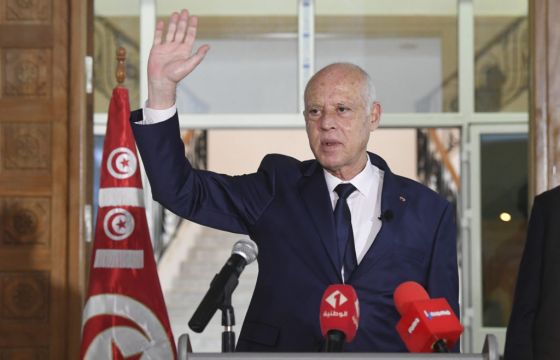Tunisia’s President Kais Saied issued presidential decrees bolstering the already near-total power he granted himself two months ago.
Wednesday’s decrees include the continuing suspension of the Parliament’s powers and the suspension of all politicians’ immunity from prosecution.
But the text published in the official gazette went even further, now freezing politicians’ salaries.
They also state Mr Saied’s intention from now on to rule by presidential decree alone and ignore parts of the constitution.
Laws will not go through the parliament, whose powers are frozen, granting him near-unlimited power.

On July 25, Mr Saied sacked Tunisia’s prime minister, suspended parliament and assumed executive authority, saying it was because of a national emergency.
His critics called it a coup.
For law professor Mouna Kraiem, the new emergency measures amount to “the establishment of a dictatorship in the full sense of the word”.
Mr Saied has denied wanting to be a dictator, saying that he eventually aims to put his political reforms to the public in the form of a nationwide referendum.
But his political critics remain sceptical of this intention.
The July event came after years of economic sluggishness, but were triggered by a day of violent protest and a rise in coronavirus cases.







